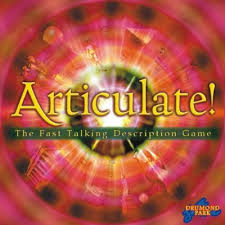articulate
英 [ɑːˈtɪk.jə.lət]
美 [ɑːrˈtɪk.jə.lət]
- vt. 清晰地发(音);明确有力地表达;用关节连接;使相互连贯
- vi. 发音;清楚地讲话;用关节连接起来
- adj. 发音清晰的;口才好的;有关节的
使用频率:

记忆方法
将“articulate”拆解为“art-i-culate”,想象自己在艺术(art)上展现了流畅、清晰的表达(i-culate),就像艺术家在作品中展现技艺一样。这种方法将单词的含义与其构成元素相结合,有助于记忆。
以上内容由AI生成, 仅供参考和借鉴
中文词源
articulate 连贯的,发音清晰的
来自词根art-, 连贯,连结,词源同art, arm.
英语词源
- articulate (v.)
- 1590s, "to divide speech into distinct parts" (earlier "to formally bring charges against," 1550s), from Latin articulatus, past participle of articulare "to separate into joints," also "to utter distinctly," from articulus "joint" (see article). Generalized sense of "express in words" is from 1690s. Literal sense, "to join, to attach by joints," is attested from 1610s. Earlier senses, "to set forth in articles," "to bring a charge against" (1560s) now are obsolete or nearly so. Related: Articulated; articulating.
- articulate (adj.)
- 1580s in the speech sense (1570s as "formulated in articles"), from Latin articulatus (see articulate (v.)). Literal meaning "composed of segments united by joints" is from c. 1600; the general sense of "speaking accurately" is short for articulate-speaking (1829). Related: Articulately.
权威例句
- 1. He is polished, charming, articulate and an excellent negotiator.
- 他文雅、迷人、能言善辩,是一名优秀的谈判人。
- 2. She is clearly the most articulate and self-possessed member of her family.
- 显然,她是全家口才最好、最沉着冷静的人。
- 3. She is an articulate young woman.
- 她是一个口才很好的年轻女子。
- 4. She is dauntingly articulate.
- 她的能言善辩令人敬畏。
- 5. She struggled to articulate her thoughts.
- 她竭力表明她的想法。